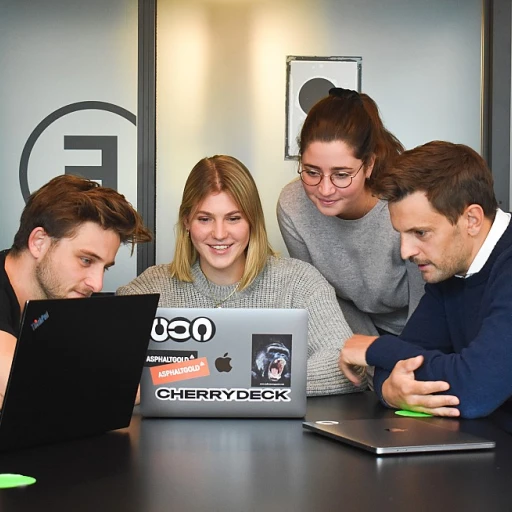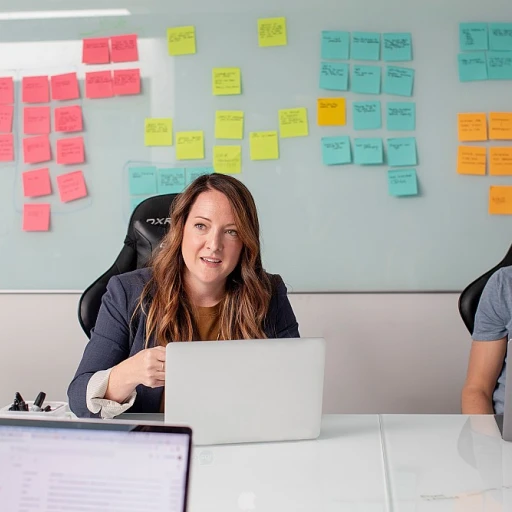
Understanding the Role and Its Requirements
Clarifying Role Expectations
Before diving into the pool of potential talents, it is paramount to have a strong grasp of the role and its requirements. This understanding forms the backbone of the interview process, guiding the interviewer in crafting relevant questions that truly resonate with the position. Knowing the job inside-out is essential. You must be able to articulate its primary responsibilities and the skills needed to succeed. One of the best strategies is to begin with foundational questions designed to measure the candidate's grasp of the role. For example:- "Can you describe a time when you handled a similar role?"
- "How do your past experiences align with this job requirement?"
Behavioral Questions: Uncovering Past Experiences
Exploring Past Experiences for Insight
When it comes to understanding how a candidate might perform in a new role, looking into their past experiences can be incredibly revealing. Behavioral interview questions are designed to help hiring managers uncover how candidates have handled situations in previous jobs. This approach can provide a window into their problem-solving skills, decision-making abilities, and how they might fit into your company culture.
Here are some key questions to consider during the interview process:
- Describe a time when you faced a significant challenge at work. How did you handle it? This question helps assess a candidate's problem-solving skills and resilience. It can also reveal how they approach challenges and whether they can maintain composure under pressure.
- Can you provide an example of a situation where you had to work as part of a team to achieve a goal? This question is great for evaluating teamwork and collaboration skills. It can also shed light on how a candidate interacts with team members and contributes to group success.
- Tell me about a decision you made that was not popular and how you handled implementing it. This question helps gauge a candidate's leadership and decision-making skills. It also provides insight into their ability to navigate difficult situations and maintain professional relationships.
- Describe a situation where you had to learn something new quickly. How did you approach it? This question can reveal a candidate's adaptability and willingness to learn, which are crucial soft skills in any role.
These questions not only help in assessing the candidate's past experiences but also provide a glimpse into how they might handle future challenges. For more on mastering the art of the prescreen interview, you can explore this guide which offers additional insights into effective interview strategies.
Cultural Fit: Questions to Gauge Alignment with Company Values
Assessing Compatibility with the Company's Core Principles
In any hiring process, ensuring that a candidate aligns with the company's core values is as important as verifying their professional skills. This part of the interview offers an opportunity to gauge if a potential team member will harmonize with the company's culture. Understanding this alignment can greatly influence the success of the new hire within the organization, impacting team dynamics and overall job satisfaction. To achieve this, consider the following best practices:- Ask About Past Company Cultures: A valuable question could be, "Describe a time when you worked in a team with a strong company culture. How did you adapt to it?" This question helps reveal how candidates have adapted to different company cultures in the past, which can be insightful for assessing how they might fit into your own work environment.
- Value Alignment Queries: Inquire about the candidate's personal values and how they align with the company's principles. A great question is, "What company core value do you resonate with the most and why?" This helps determine if their personal and professional ethics are in sync with the broader company mission.
- Scenario-Based Questions: Prepare hypothetical scenarios that reflect your company's ethos. For instance, "In our company, we prioritize team work over individual success. Describe a situation where you put team goals ahead of your own." This can offer a glimpse into the candidate's decision making and willingness to adapt to your organizational norms.
- Exploring Soft Skills: Questions that target soft skills can be useful here too. Ask candidates how they handle conflict or communication breakdowns within a team. "Tell me about a time you had to resolve a team disagreement. How did you approach the issue?" Such questions not only uncover their interpersonal skills but also their ability to sustain company culture through positive interactions.
Problem-Solving and Critical Thinking Questions
Evaluating Problem-Solving Abilities
When it comes to hiring, understanding how a candidate approaches problem-solving is crucial. This aspect of the interview process helps determine if they can effectively handle challenges that arise in the role. Asking the right interview questions can reveal a lot about a candidate's critical thinking skills and their ability to work through complex situations.
Here are some questions that can help assess a candidate's problem-solving abilities:
- Describe a time when you faced a significant challenge at work. How did you handle it? This question helps you understand the candidate's approach to problem-solving and decision-making. Look for answers that demonstrate a logical process and the ability to stay calm under pressure.
- Can you provide an example of a situation where you had to make a quick decision? This question is designed to evaluate the candidate's ability to think on their feet and make sound decisions in a timely manner. It's important to assess whether their decision-making aligns with the company's expectations and values.
- How do you prioritize tasks when you have multiple deadlines? This question helps gauge the candidate's organizational skills and their ability to manage time effectively. It also provides insight into how they handle stress and pressure.
- Tell me about a time when you had to work with a team to solve a problem. What was your role, and what was the outcome? This question not only assesses problem-solving skills but also evaluates teamwork and collaboration. Understanding how a candidate interacts with team members can be crucial for ensuring a good cultural fit.
These questions are designed to uncover how candidates approach challenges and whether their problem-solving skills align with the needs of the role. By focusing on real-life scenarios, you can gain valuable insights into their capabilities and how they might contribute to your team.
Communication Skills: Evaluating Clarity and Effectiveness
Delving into Communication Abilities: Core Competencies in the Hiring Process
Incorporating communication-centric questions into your interview process is crucial for identifying candidates whose skills align with the needs of the role and company culture. Communication is not just about speaking fluently; it’s about clarity, effectiveness, and the ability to convey ideas efficiently. Here are some questions that will help gauge a candidate’s communication skills:- Describe a time you had to explain a complex idea to your team. How did you ensure everyone understood?
- This question gives insight into the candidate's ability to simplify and communicate intricate concepts. It also evaluates their potential to work effectively within a team environment.
- Can you describe a situation where you had to modify your communication style to collaborate with a different department or team member?
- Great question for assessing adaptability in communication. This helps in identifying whether the candidate can handle diverse communication needs in a varied workplace setting.
- How do you handle feedback from team members on your communication style?
- Feedback is critical in communication improvement. The candidate’s answer will help determine their openness to constructive criticism, an essential soft skill in fostering a positive work environment.
- Tell us about a time when communication breakdown led to a problem. How did you resolve it?
- An opportunity to evaluate problem-solving and decision-making through experiences. It emphasizes the candidate’s ability to recover from communication missteps and their approach to conflict resolution.
Red Flags: Questions to Identify Potential Concerns
Identifying Potential Concerns in Candidates
In the hiring process, it's crucial to identify any potential red flags that might indicate a candidate is not the right fit for the role or the company. This involves asking the right interview questions that probe deeper into a candidate's past experiences and behaviors. Unlike general questions, these are designed to uncover details that may indicate incompatibility with the team or company culture.- Inconsistencies in Career Progression: A question to ask could be, "Can you describe a time you felt stagnant in your work, and how did you handle it?" This question helps to uncover whether candidates have shown consistent growth in their careers or if there are unexplained gaps or sudden job changes that could warrant further investigation.
- Responses to Conflict: Ask candidates to "Describe a situation where you had to work with a difficult team member. How did you handle the situation?" The way a candidate answers this question will reveal their problem-solving and decision-making skills, as well as their ability to maintain professionalism in challenging scenarios.
- Alignment with Company Values: Questions like "Share an experience that reflects our company values" allow you to assess whether the candidate's actions in previous roles reflect the principles your organization values.
- Understanding of Role Requirements: Use questions that assess if candidates have accurately understood the role they are being interviewed for. For instance, asking "Which aspects of this role do you think will be the most challenging?" can help you gauge if they have a realistic view of the job and are prepared for its demands.













